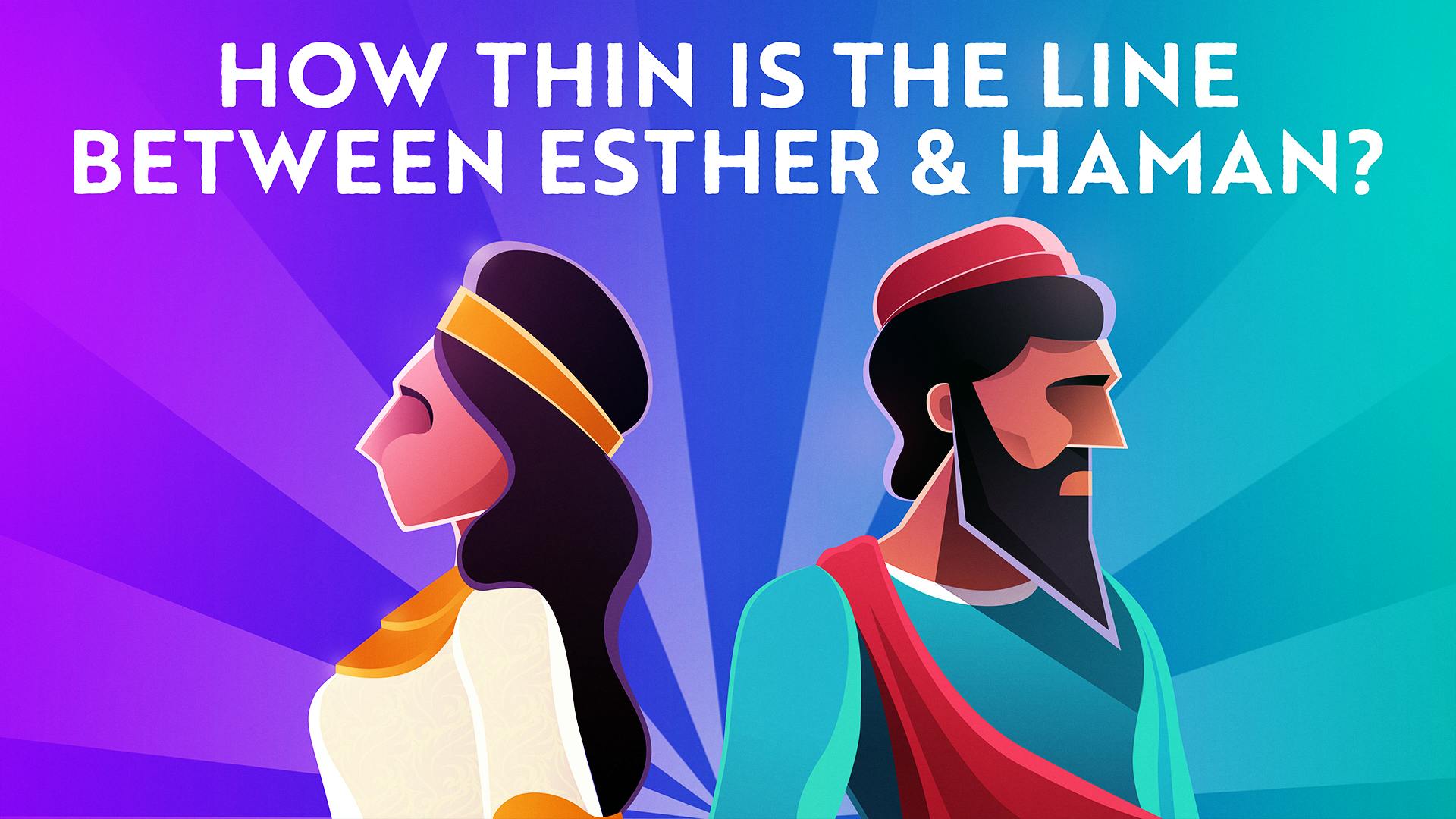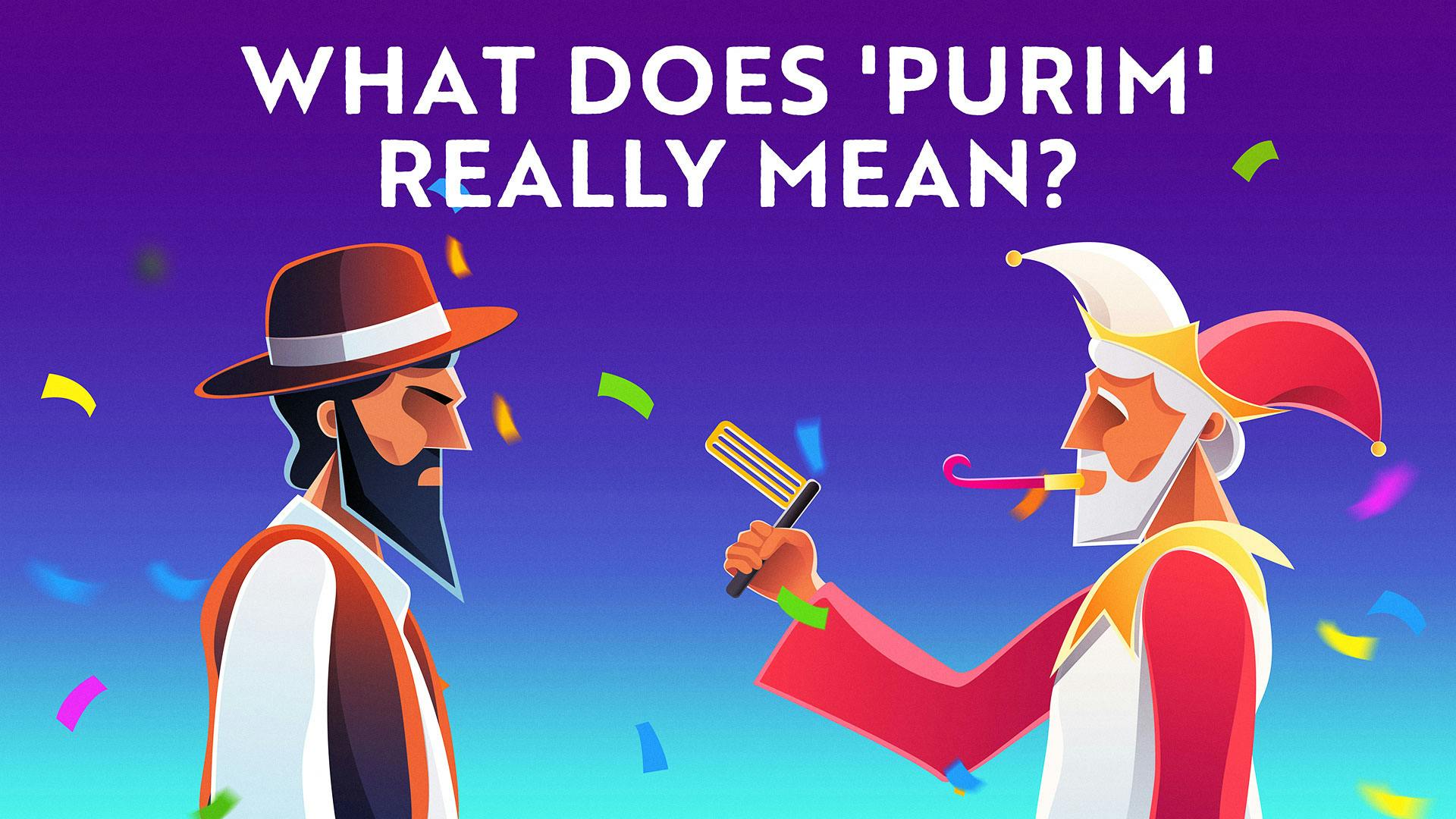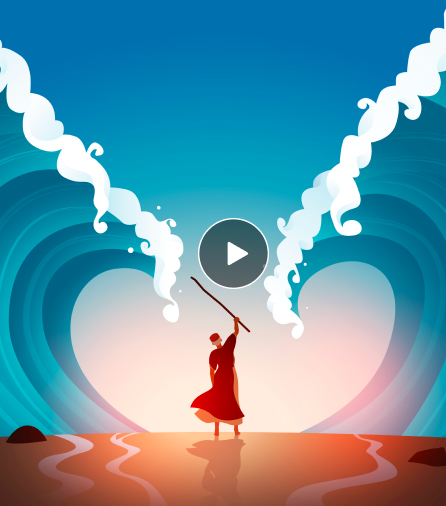Rosh Hashanah: The Jewish New Year
Introduction to Rosh Hashanah
| August 7, 2024 | 5 Minute Read

Rosh Hashanah is the Jewish New Year—a time for reflection, prayer, and yes, brisket. While the holiday might be best known for the sweet tradition of “dipping the apple in the honey,” it’s even more so (OK, maybe it’s equally) about soul-searching and preparing to start the new year with a fresh slate. Rosh Hashanah falls during the first two days of Tishrei, marking the start of the Yamim Noraim, the “Days of Awe” ( also known as the High Holidays or High Holy Days), a ten-day period of repentance and forgiveness that begins with Rosh Hashanah and culminates in Yom Kippur, the Day of Atonement
Rosh Hashanah—The Head of the Year
Rosh Hashanah (literally translated as the “Head of the Year,”) marks the anniversary of the creation of Adam and Eve and is celebrated with a range of customs and traditions. One of the central observances is the blowing of the shofar, a ram’s horn, in synagogues on both mornings of the holiday (except when it falls on Shabbat). This powerful sound is meant to call people to attention and remind them of their spiritual duties.
The holiday meals are rich with symbolism, featuring round challah bread, often filled with raisins to represent a full and sweet year, and apples dipped in honey to further emphasize hopes for sweetness in the year ahead. Other foods with symbolic meanings, such as pomegranates (for abundance) and fish heads (to symbolize being the "head" and not the "tail" amongst the nations), are also traditionally included. Candle lighting marks the beginning of the holiday each evening, and all work is paused to allow for focus on prayer, reflection, and the themes of the day.
When is Rosh Hashanah 2024?
Rosh Hashanah 2024 starts on the evening of October 2nd and concludes after nightfall on October 4th.
Rosh Hashanah—A Holiday of Many Names
Rosh Hashanah (literally translated as “head of the year”) is called by many different names each reflecting different aspects of the holiday's significance, traditions, and themes.
Some of the most well-known names for Rosh Hashanah are:
- Yom Teruah (יום תרועה)- Day of Sounding the Shofar
This name comes from the Torah, where Rosh Hashanah is described as a day of blowing the shofar (Leviticus 23:24, Numbers 29:1). The shofar's blasts are meant to awaken spiritual consciousness and call people to repentance.
- Yom HaZikaron (יום הזיכרון)- Day of Remembrance
Not to be confused with the Israeli Memorial Day, the name Yom Hazikaron is also rooted in the Torah. This name emphasizes the idea that Rosh Hashanah is a day when God remembers His creations, reviews their deeds, and decides their fate for the coming year (Leviticus 23:24). It reflects the introspective and judgmental aspects of the holiday.
- Yom HaDin (יום הדין)- Day of Judgment
This name highlights the belief that Rosh Hashanah is a day when God judges all of humanity, determining their future for the upcoming year. It underscores the solemnity and significance of the holiday as a time for reflection and repentance.
What's the Difference Between the Jewish New Year and Other New Year Celebrations?
Most New Year celebrations involve a countdown, fireworks, and perhaps a slightly regrettable rendition of “Auld Lang Syne.” But Rosh Hashanah isn’t about popping bottles at midnight. It’s a time for reflection on the past year and setting the tone for the year ahead. Instead of making resolutions to hit the gym, Jews around the world spend this time focusing on spiritual self-improvement, seeking forgiveness, and asking for a favorable judgment.
Five Interesting Facts About Rosh Hashanah
- Dual-Day Celebration: Rosh Hashanah is observed for two days, even though the verse in the Torah says, “And in the seventh month, on the first of the month, you shall observe a cessation of work—a day of remembrance, of the sounding of the shofar.” (Vayikra 23:24) This practice dates back to ancient times when the sighting of the new moon was uncertain, and the extra day ensured the holiday was celebrated at the correct time.
- One of Four Jewish New Years: Rosh Hashanah is just one of four New Years in the Jewish calendar. There's also Tu BiShvat, the New Year for the Trees, celebrated in the spring to mark the start of the agricultural cycle in Israel. Other New Years include the first of Nisan, which serves as the new year for counting the reigns of kings and months, and the first of Elul, which is traditionally the new year for tithing animals.
- 100 Shofar Blasts: During the holiday, there are 100 blasts of the shofar: a combination of three distinct sounds—Tekiah (a long blast), Shevarim (three shorter blasts), and Teruah (a series of rapid, staccato sounds).
- Greeting for the Occasion: The traditional greeting during Rosh Hashanah is "Shanah Tovah," which means "Good Year." It's also common to hear “Ketivah v’Chatimah Tovah,” meaning "May you be inscribed and sealed for a good year," referring to the belief that one’s fate is written in the Book of Life.
- New Fruits for a New Year: On the second night of Rosh Hashanah, it is customary to eat a new fruit—one that has not yet been eaten in the season—to symbolize new experiences and fresh beginnings in the new year.
Looking for more?
We have hours of delightful videos and podcasts to enhance your Purim celebration this year.
Rosh Hashanah Videos

Spiritual Preparation For Rosh Hashanah
Video series • Part 1 of 10 • 3 min
A Guide For Rosh Hashanah With just 5 minutes a day, you'll be ready to show up on Rosh Hashanah feeling prepared. We’ll talk about prayer, how to understand davening, why we blow the shofar, how to leave behind all the guilt of Rosh Hashanah, and why this holiday is absolutely worth celebrating.

Teshuva: Is There a Wrong Way to Repent?
Video series • Part 1 of 4 • 8 min
Repentance is an emotional and deeply personal process — yet Judaism has specific laws that govern exactly how we’re supposed to do it. Can there really be a “wrong” way to repent?

Repentance: The Guiding Voice Of Our Moral Conscience
Video • 1 hour, 34 min
How can we welcome a time of year that causes us so much angst, guilt, and shame?

Yamim Noraim And The Difference Between Awe And Fear
Video • 1 hour, 18 min
Many of us associate the Yamim Noraim (Days of Awe) with guilt and fear. But is “awe” the same thing as “fear”? Answering this question may be key to breaking free of the painful emotions that often accompany these days and experiencing them in a brand new, uplifting way.
What is Aleph Beta?
Aleph Beta is a unique kind of Torah library. Led by our founder, Rabbi David Fohrman, we are dedicated to high-level, textual Torah learning for adults that is intellectually and spiritually sophisticated, that enlivens your Jewish practice and helps you forge a deeper connection to God. Whether you’ve been learning in yeshiva for years or you’re just beginning your Torah journey, you’re sure to find something meaningful and surprising waiting for you here.
Browse our library of over 1,000 beautifully produced animated videos, podcasts, deep dive courses, and printable guides. Topics include the weekly parsha, Jewish holidays & fast days, laws & mitzvot, prayers, relationships, big philosophical ideas and more. Have something to say at the Shabbos table that will amaze your family and guests and bring deep meaning into their lives.




